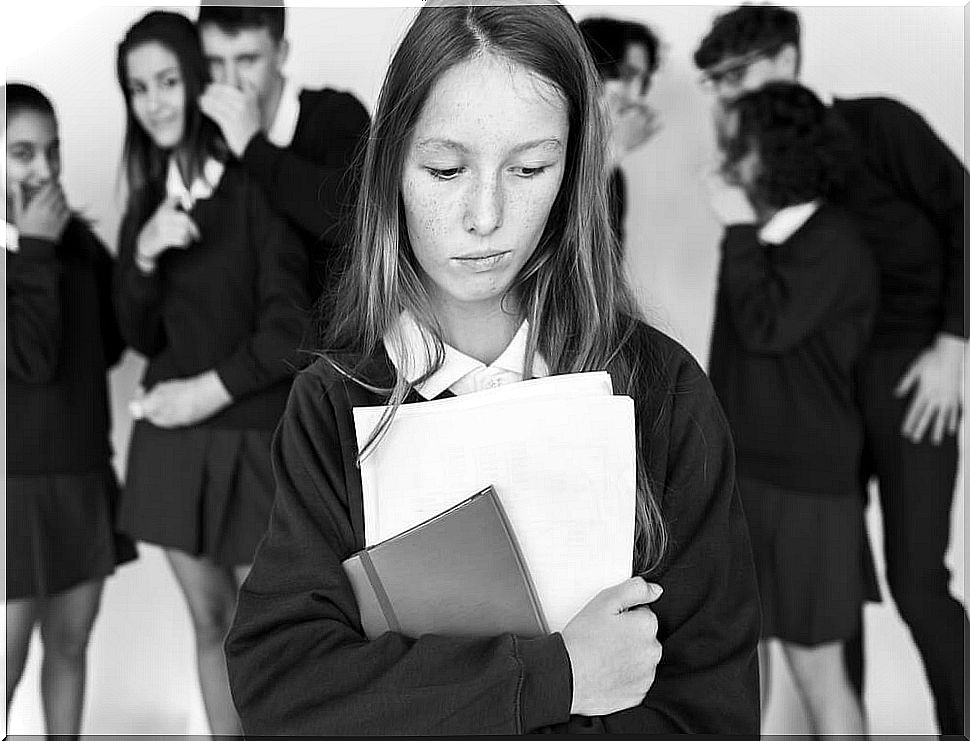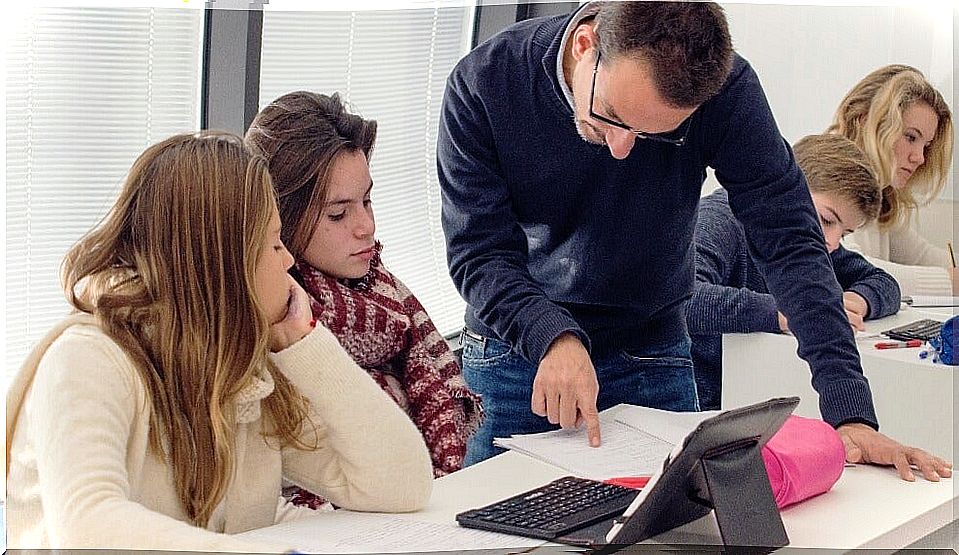Teachers, The Syllabus Is Not The Only Important Thing

Surely on some occasion we have all met a teacher who manages to antagonize, argue and even withdraw the word from a student he teaches. An attitude that leaves much to be desired and that some people would call “catching up with the student”. However, there are other types of teachers. Those who enter class and read the book’s syllabus without explaining anything or those who seem to be always in a hurry and keep saying “We won’t have time to see everything.”
The dynamics are the same. A teacher who can get along better or worse with the students whose only task is to comply with the didactic schedule, give the syllabus, focus on the marks that the students get (if it is from a notable up, much better) and send excessive amounts of exercises to home with the aim that students consolidate knowledge and learn. Isn’t something missing in all this?
The agenda is not the only important thing
Those eagerness to give the agenda, to meet the objectives or to give the whole book, end up destroying the creativity of young people who, far from learning, try to internalize, as best they can, all the amount of information that is provided to them. The problem is that the following year they will remember nothing or almost nothing.
This is something that many teachers complain about. However, few dare to check if their way of proceeding is correct. The importance of grades, the little empathy that is given to the student, especially the adolescent, and how much the teacher influences their pupils, are issues that almost no one seems to want to consider yet.

It seems that as soon as they enter class some teachers forget the most human part of this whole process. Especially if they deal with delicate ages such as adolescence. It is not surprising that when a topic of bullying or harassment comes up, teachers throw their hands to their heads and exclaim in surprise “We hadn’t noticed!” Something that is totally natural, especially when the students are indifferent to them.
However, despite the fact that there is a certain number of teachers who are not capable of inspiring and transmitting the passion that they should feel for their work to their students, there are many others who do. Here is a fragment of the testimony that Carlos Arroyo wrote in El País on August 17, 2013:
A student may love math and end up hating or loving it depending on the teacher he or she has. Another may never become a writer, something he is passionate about, because he encountered a literature professor who criticized his writing negatively. Teachers influence the self-esteem of their students.
A teacher can generate changes in his students
Just as the choice of positive or negative reinforcement influences children’s behavior at home, the same is true in the classroom. If a teacher does not believe in his students and so transmits it to him; If you cannot motivate them, it is clear that the situation will not improve on its own. There is no use complaining then. Because the educator has a power that he either does not want to use or is unaware of.

All this I can affirm based on my personal experience. Not only have I been a student (something many teachers forget) but I have also been a trainee secondary school teacher. With my own eyes I have seen my own internship tutor antagonize me and say the following words about a student “With that there is nothing to do, he does not even open the book.”
My tutor only saw rebellious teenagers, some better than others, but the vast majority clueless and some “little kids”. That vision did not coincide at all with mine, because without knowing them yet, I observed how most of them felt insecure, unmotivated, lacking in self-esteem and, without even asking them, I assumed which of them had problems in their homes.
Interestingly, when I took command of the classes over the course of 2 months, that particular student who did not open the book did. At no time did I ignore him, let alone bad-mouth him. Nor did I order him to do something he did not want, just something happened.
The way the class was conducted, the passion that it transmitted and that made the students even want to go out on the blackboard and speak in front of others, caused that student to observe how their classmates worked at ease. So he opened his book, his notebook of his own accord, and did the exercise he had asked of them: an essay.
My tutor’s jaw dropped. He said he had achieved an impossible. However, I was only thinking of that student in whose writing I was able to verify what he assumed almost with complete certainty: he lived in a dysfunctional family. Unfortunately, I was unable to continue as my internship was ending. However, I realized that it is the teacher who generates a change in the student’s attitude.
My tutor told me that allowing the students to go out on the blackboard and perform some exercises in groups was positive. But, in the long run, it took a lot of time to give the agenda. However, I asked myself: what is more important? That the student learn by having fun, expressing himself, exposing himself to his classmates and carrying out a didactic activity or repressing that just to give more content of which a tiny part will internalize?

A change is needed in the classrooms. Although there are already schools that implement the Montessori method or others such as the Sadako school in Barcelona, in which there are no individual desks, collaborative learning and emotional, social and philosophical education are encouraged, most are still governed by the model traditional. A model that does not work for everyone. Because although the agenda is an important part, it is not everything.









